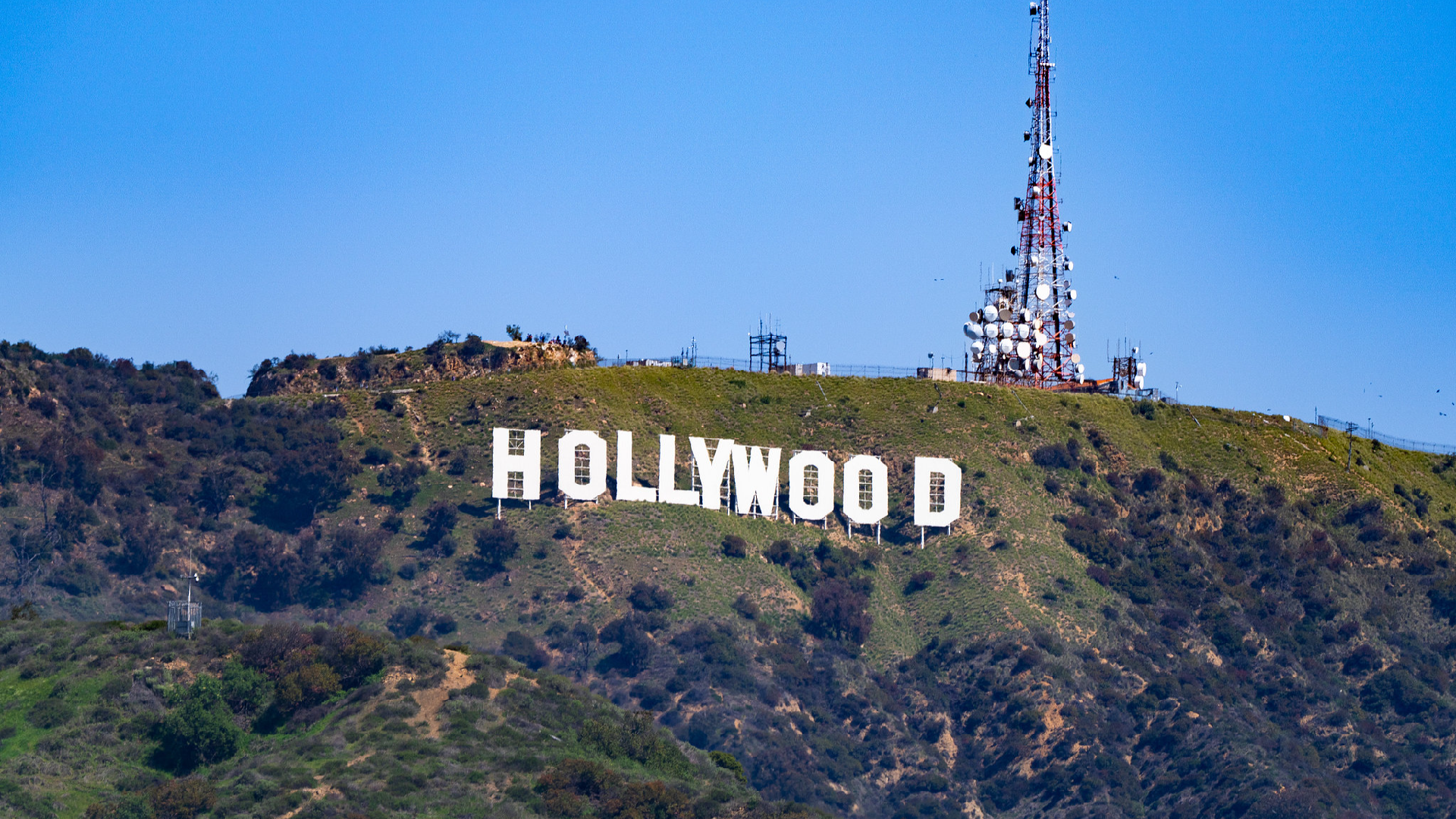‘Keep it up’: Biden rallies democracies and urges global cooperation
The president addressed a crowd of 10,000 American- and Ukrainian-flag waving onlookers who cheered Biden’s promotion of democracy.

VILNIUS, Lithuania — President Joe Biden used his last moments here to rally NATO allies and the world’s democracies to stick together as Russia’s war on Ukraine extends beyond 500 days.
Standing in the heart of a capital of a former Soviet republic, Biden boasted that democracies who champion freedom against authoritarianism’s creep have held strong, even in the face of the largest land war in Europe since World War II. He pushed for the protection and promotion of global democracy not just in Ukraine against Vladimir Putin’s Russia, but well into the future to keep dictators and other global threats at bay.
“The defense of freedom is not the work of a day or a year. It's the calling of our lifetime. We’re steeled for the struggle ahead. Our unity will not falter, I promise you,” he told a crowd of 10,000 American- and Ukraine-flag toting onlookers who gathered at Vilnius University. Before the president walked on stage, a group could be heard chanting "Slava Ukraini."
The president’s address was a paean to NATO and the transatlantic security architecture he has toiled to strengthen well before the invasion began. But Biden also used the opportunity to call for more cooperation among nations to address challenges like climate change, poverty and economic inequality.
“The choices we make now are going to shape the direction of our world for decades to come. With nations working together with common cause, we can answer these questions,” he said.
“Keep it up, keep going,” he rallied the crowd, packed tightly into a square flanked by the university’s yellow walls.
In many ways, Biden’s address was a rehash of a speech he gave in February in Warsaw. Fresh off a surprise visit to Kyiv, Biden encouraged NATO allies and partners to further boost Ukraine’s defenses against Russia. He used the dramatic moment to argue transatlanticism wasn’t withering, but rather rebuilding its muscle under his leadership.
“NATO is stronger, more energized and yes, more united than ever in its history,” he further claimed in Lithuania.
The president’s apparent good mood and optimistic outlook came hours after a NATO summit with undeniable wins. The biggest victory of all happened before the gathering even began, when Turkey on Monday ended its year-long blockade of Sweden’s entreé into the alliance, paving the way for the military bloc to welcome its 32nd member.
But Biden’s victory lap was marred by a tense middle portion of the summit.
NATO’s communiqué removed one hurdle to Ukraine’s hoped-for membership but didn’t delineate clear accession conditions or timelines. “We will be in a position to extend an invitation to Ukraine when allies agree and conditions are met,” the joint statement read.
That enraged Ukrainian President Volodymyr Zelenskyy, who hours before arriving in Vilnius Tuesday blasted the language as “unprecedented and absurd” — a broadside that threatened the unity Biden and his team hoped to exhibit in Vilnius.
Zelenskyy, however, unexpectedly reversed course on the second and final day. He called the outcomes of the summit “a significant security victory” for Ukraine while reiterating that an invitation to join NATO was the preferred deliverable. One reason for the newfound gratitude was the commitment by G-7 nations, including the United States, to long-term military and economic assistance for Ukraine including weapons, training and reconstruction funds.
And before a bilateral meeting with Biden, prompted by a question from POLITICO, Zelenskyy stated “we have great unity from our leaders and the security guarantees — that is a success for this summit.”
Jake Sullivan, the U.S. national security adviser, made the television rounds earlier Wednesday to quell the narrative of a mixed-bag gathering.
“We didn't want a mechanical formula down because war is dynamic, the situation is dynamic. And NATO needs to be able to retain flexibility, working closely with Ukraine on its pathway to make a determination about what down the road it makes sense to admit them,” he told CNN. Admitting Ukraine into the alliance now would directly put NATO at war with Russia.
In the meantime, “we're prepared to provide that security assistance long out into the future and, certainly, for the duration of the period while Ukraine is working its way on the pathway towards NATO,” he asserted.
How history judges the Vilnius summit depends on some circumstances outside Biden’s control.
Sweden doesn’t yet have the green light, and Congress’ reluctance to approve a F-16 fighter jet transfer to Turkey could yet scuttle the handshake agreement. Ukraine’s counteroffensive hasn’t dealt a decisive blow to Russia’s front lines in the east and south, pushing the conflict well into America’s tumultuous election season where Biden could likely face Donald Trump, a NATO and Ukraine skeptic. And Ukraine’s anger at the results in Vilnius could lead Kyiv to reassess its relationship with Washington down the line.
There’s also a fear that Russia will find ways to extend the war just to lower the chances of Ukraine imminently joining NATO. Allied leaders, however, repeatedly downplayed that concern.
“It is very clear that this question of NATO membership will not be an issue that can be raised by others who are not part of this partnership — in other words, Russia will not be able to mandate this,” German Chancellor Olaf Scholz said on his way home from Lithuania.
For now, Biden is leaving the Lithuanian capital buoyant that transatlantic security was strengthened on his watch and at his urging.
“We will not waver,” the president boomed before underscoring: “We’ll stand for liberty and freedom today, tomorrow and for as long as it takes.”
As Biden left the podium, chants of U-S-A rang out through the venue.
Hans von der Burchard contributed to this report.
Find more stories on the environment and climate change on TROIB/Planet Health












